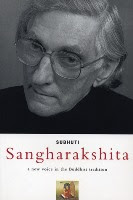The Way We Live Now
by Anthony Trollope
narrated by Timothy West
"The story concerns Augustus Melmotte, a French swindler and scoundrel, and his daughter, to whom Felix Carbury, adored son of the authoress Lady Carbury, is induced to propose marriage for the sake of securing a fortune."I finished listening to this on the drive to my two-week retreat, and then indulged in an orgy of book-reading during the retreat (see below). Obviously I love Trollope, but two weeks is a long time before coming up with a 'review' so I can't write anything very profound except that he writes a cracking story with believable characters and generally the good guys come out on top. Like a version of Georgette Heyer that your English teacher would approve of.
The Odyssey
by Homer
"Odysseus' reliance on his wit and wiliness for survival in his encounters with divine and natural forces, during his ten-year voyage home to Ithaca after the Trojan War, is at once a timeless human story and an individual test of moral endurance."Having read the Iliad first with some idea that one should read a series in order, this was the better story (and no long lists of which tribe came from where with how many ships and warriors). Structured as well as any modern book, starting with Odysseus's son and wife in the present, then switching back to the past through the device of Odysseus telling the story of his journey, before the two strands meet and the Suitors get their just deserts. It was a bit bloody at the end, but it is Ancient Greece after all. I really enjoyed it.
Sangharakshita: A New Voice in the Buddhist Tradition
by Subhuti
"Sangharakshita has established a successful Buddhist movement, pioneering a living Buddhism that seems well suited to our times. Here, one of his closest disciples offers a comprehensive account of Sangharakshita's evolution as a thinker and teacher."This one took a while to get through, but it helps to put the thinking behind the Western Buddhism movement into context with other, more ancient, traditional and monastic communities. A very useful and timely perspective for me; not recommended for the casual reader.
The Empty Mirror: Experiences in a Japanese Zen Monastery
by Janwillem van de Wetering
"This book tells of the year and a half the author spent in Japan as the disciple of a Zen master in a Buddhist monastery, illustrating the struggles every Buddhist monk has to solve his koan - the mysterious and often illogical question which every Zen master asks his disciples, and to which they are irrevocably bound."Lent to me by a Buddhist friend, this is a short book that sheds light on what actually went on in the monastery. Zen seems to be designed for hard-core Buddhists who need to feel pain in order to make progress - any tradition that insists I sit in the lotus position is not going to get its spiritual message across to me any day soon. But this guy had a good go at it, and wrote an interesting book.
Lovingkindness: The Revolutionary Art of Happiness
by Sharon Salzberg
"The author draws on simple Buddhist teachings, wisdom stories from various traditions, guided meditation practices, and her own experience from twenty-five years of practice and teaching to illustrate how each one of us can cultivate love, compassion, joy, and equanimity—the four 'heavenly abodes' of traditional Buddhism."This book was recommended to me by a friend in Birmingham because of the trouble I was having with one of the key meditation practices. It's been eight years since I was introduced to the 'Metta Bhavana' meditation and despite trying all sorts of different approaches, I've never quite been able to engage with the principle of developing 'lovingkindness', which is the untranslatable concept of metta. This book together with being on retreat has led to what I think may be a breakthrough. I'll give it some time and see whether it is a lasting effect, or just seemed that way because of being on retreat.
Atlas Shrugged
by Ayn Rand
"In an alternative recent past USA, the innovators, producers and creators have mysteriously disappeared. With the economy now faltering, businesswoman Dagny Taggart is struggling to get the transcontinental railroad up and running."A truly immense book at over 1100 pages, recommended by another Buddhist because he felt he could draw some parallels with what he has been learning about Buddhism. I read it within the two weeks of the retreat along with finishing five of the other books in this blog post, which just shows what a lot of freedom there is to spend time reading while on retreat. I didn't discern anything relating to Buddhism and there is definitely no need for the book to be that long. The author is famous for developing an approach to politics and society that is labelled 'Objectivism', and the essence of the story is pretty good if you take it just as a story, but I had to speed-read through the bloated sections where her views are expounded at great length by one or other of her characters.
The Essence of Chán: A Practical Guide to Life and Practice according to the Teachings of Bodhidharma
by Guo Gu
"Legend has it that more than a thousand years ago an Indian Buddhist monk named Bodhidharma arrived in China. He paved the way for a unique and illuminating approach to Buddhist teachings that would later spread across the whole of East Asia in the form of Chan—later to be known as Seon in Korean, Thien in Vietnamese, and Zen in Japanese."Another loan from another friend, mercifully short and fairly impenetrable to me. I don't think there's much point me reading books about Buddhist teaching without someone to explain it all.









